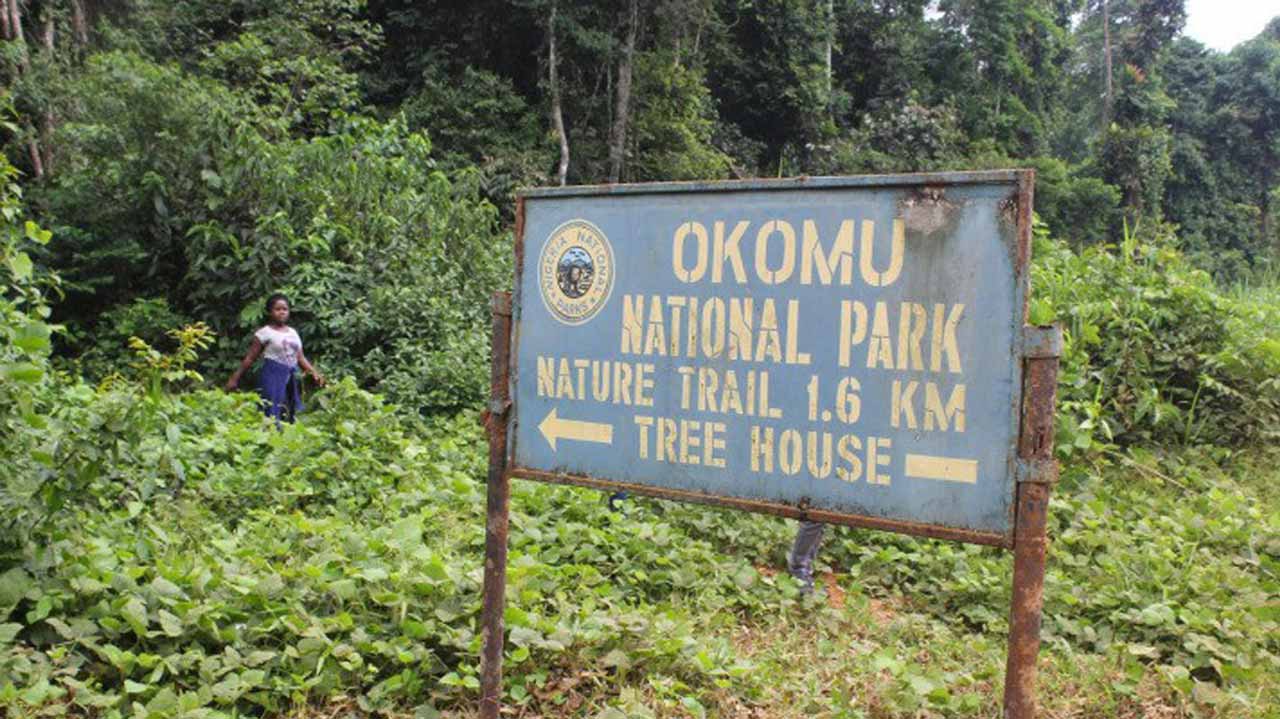
The Conservator of Park at Okomu National Park, based in Edo State, Lawrence Osaze, on Friday, said it has drastically reduced illegal logging, among other environmental issues bedevilling its operations at Okomu National Park.
He also commended the partnership of the National Park Service (NPS) with the Africa Nature Investors (ANI) Foundation, noting that its support has led to the significant reduction of illegal logging of trees, poaching of animals, and other illegal activities to the barest minimum in the park.
Speaking with journalists in the Okomu Landscape, the CP thanked ANI Foundation for its tremendous support since its involvement in the management of Okomu National Park along with the NPS.
He said, “I was posted here in November 2022, so we started working in earnest in December of that year. They were still trying to settle down, carrying out lots of training for the team, rangers, and all that. Upon concluding the training, the work moved to the recruitment of the rangers on behalf of the park.
“We call them Volunteer Rangers. Before this time, we had a serious challenge of illegal logging around the place. But we joined forces together, and the story today is entirely different. The park is relatively peaceful, and logging activities are at the barest minimum.”
READ ALSO:Gains in Okomu oil, 32 stocks lift capitalisation by N11 billion
Speaking further, the CP, an indigene of Edo State, said efforts are now being directed at other areas, including enlightenment, education of communities living around the park, as well as empowerment, which ANI Foundation continues to champion.
“Moreover, both of us, the National Park Service and ANI Foundation, have had a series of meetings and engagements with the communities to convince them to give us the required support, and by the grace of God, a few activities have been done in collaboration with other people, like the socio-economic initiatives, with a view to bringing other viable means of livelihood to the people in such a way that they will not be fully dependent on forest resources. We have engaged some to help us guide vestiges of the ecosystem,” he added.
According to the CP, ANI Foundation was invited to the partnership following the eco-tourism sustainability scheme the not-for-profit organization brought to bear in its ongoing partnership with the NPS regarding the Gashaka Gumti National Park in Taraba and Adamawa States.
“ANI Foundation was brought in for them to contribute their quota to the sustainability of the national park in Edo State. Since then, we have been working well together in terms of park protection and community engagement to ensure the park is protected sustainably in this environment. Our land is one major functional area. You know, in the rural communities, you have different functional areas, like land, water, and trees,” he stressed.
Also speaking, Peter Abanyam, ANI Foundation’s Project Manager for Okomu National Park, said what the park lacks in size, being the smallest national park in Nigeria, it makes up for in richness regarding species diversity.
“Okomu National Park is one of the biodiversity hotspots within this region in Nigeria, especially for the African Forest Elephant, which is a flagship species. Okomu is also important for the monkey species known as the White-Throated Monkey, which is endemic to this park. By endemic, we mean that in the whole wide world, it is mostly only found here, apart from a smaller population in the southwestern parts of Nigeria,” he stated.
Speaking about ANI Foundation, Abanyam said: “Our aim at ANI is to make Africa’s nature and wildlife a source of pride to Africans and to demonstrate that appropriate private sector investment can make nature conservation sustainable and profitable in a manner that benefits local and regional development. As a non-profit organization, ANI Foundation is purely charitable, raising funding for conservation purposes and partnering with the National Park Service to manage the Gashaka Gumti National Park as well as Okomu National Park.
“ANI supports the two national parks in terms of protection, working with local communities, and identifying young Nigerians who are strong and willing to join the National Park Service and helping to provide training for them. Our work with local communities involves identifying their needs and in which areas of development we can partner with the local communities to attract donors towards investing in local communities.”






